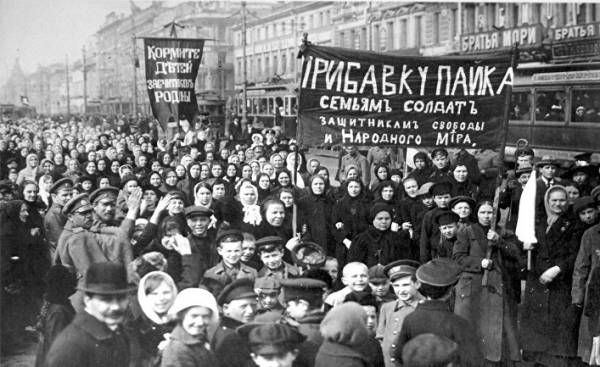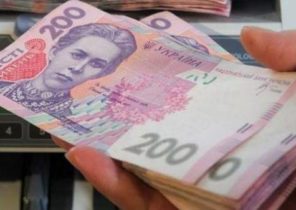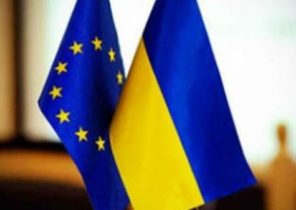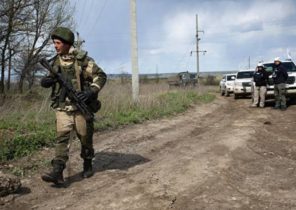
The current date is March 8 is the day of February 23, 1917. March 8, new style eclipsed February 23, 1917, the Bolsheviks didn’t love this date, because for them the beginning of the great revolution and its victory was a surprise.
Shortly before the revolution, Lenin spoke to the young Swiss social Democrats, said that his generation before the revolution, will not survive. To speak so Lenin had good reason.
In 1905, the revolutionary forces of Russia have set ourselves very ambitious goals. They are not satisfied made in the result of the October all-Russian political strike of success — the Manifesto of 17 (30) October about the improvement of the state order.
Nicholas II was forced to grant the people “the unshakable foundations of civic freedom on the basis of the actual integrity of the person, freedom of conscience, expression, Assembly and Association.” The king agreed to the convening of the legislative State Duma, giving thus the right to vote “those classes of the population who are now completely deprived of electoral rights” of employees, Jews, Muslims and others Established the rule that no law could come into force without the State Duma. The Duma was given the right of supervision over the regularity of the actions supplied by the king’s authorities.
Yes, introduced suffrage was caste, uneven, indirect; Yes, parties represented in the Duma, could not form the government; Yes, the government was not responsible to the Duma, but the convening of the parties to have the parliamentary tribune, to publish Newspapers meant indisputable progress. Before that Russia was almost 100 years — ever since the idea of the State Duma formulated Mikhail Speransky.
When you think about Russia’s history, cannot fail to strike the eye as periods of reform followed by periods of counter-reforms, as these counter-reforms cause a revolutionary perfectionism, how perfectionism causes a reaction.
Nicholas II was not only legitimate, but also the spiritual heir of his father. The policy of counter-reforms, which, after the murder of Ignaty Grinevitsky Tsar Alexander II was led by Alexander III, could lead to peace only for a while. 90-ies of the XIX century and the beginning of the twentieth century was marked in Russia by the creation of several political parties, including national. It was purely a revolutionary, left-wing parties. Forward-looking bourgeoisie and the bourgeois intelligentsia created clubs and associations like the liberal Union of liberation, which is only during the October all-Russian political strike of 1905 will be the basis of the Constitutional democratic party, the party of the cadets.
This fact alone, the fact of the creation of parties, clubs and Union of liberation, had to push the tsarist government on the reform path, but this occurred only after the country began mass protests, when the riots began even in the army. However, the Manifesto of 17 October 1905 was no longer able to meet the radical political parties and groups. Inspired by the success, they wanted more. And have not calculated their strength. Exaggerated (in my imagination) revolutionary potential and fervor of the working class and the peasantry.
The counter-revolutionary coup d’etat of 3 June 1907, led by Pyotr Stolypin, political-legal relations of the Russian threw back. Suffrage was denied to large groups of the population, a symbol of the era of steel Stolypin wagon (for transportation of remand prisoners and convicts) and Stolypin necktie (the rope). In the revolutionary camp with a new force began in the divisions. Suffice it to say that in Russian social-democracy, in addition to the Mensheviks and the Bolsheviks, followers of George Plekhanov and Leon Trotsky appeared liquidators, etsovista, ultimately, boischatel the God-builders. All this led to a tough debate and strife. The first world war gave rise to social democracy of the new flow — defeatists, defenders internationalists. Moreover, the known Bolsheviks were, if not in exile, in a remote Siberian corners.
All of the above could not cause pessimism of Lenin. Much more realistic on Russian life and watched his opponent, however, the benefactor our compatriot Alexander helphand, known as Parvus — true (with Trotsky), the author and implementer of the idea of Soviets of workers ‘ deputies. He saw that Russia was pregnant with revolution. He even planned the revolution in 1916. But, organizing a strike in Russia, he was wrong. The Bolshevik party was unable to lead even a social (not political) protest of the working class.
The setback did not stop Parvus. In the Russian social democracy, he saw three figures: Vladimir Lenin, Leon Trotsky and Julius Martov. Martov, the Menshevik though, was a longtime (since 1895), friend of Lenin, the revolutionary, internationalist, confident in the fact that world war I leads to civil war and the end of capitalism. Even more revolutionary was Trotsky. Besides, defeatist, and hence a potential ally of Lenin. But the defeatist Lenin was a distinct advantage over Trotsky: he had some no, but the party. In its plan submitted to the German authorities two years before the great revolution (9 March 1915), Parvus predicted that the Bolshevik party will take Russia out of the war. And advised the Germans to bet on the Bolsheviks. And the liberation movement of the peoples of Russia, first and foremost Ukrainian.
Some historians believe that the Great revolution began on February 23, 1917, not with the demonstration of St. Petersburg workers against hunger (although hunger, real hunger, not interruptions in the supply of products was not), and earlier — November 1, 1916, then the leader of the cadet Pavel Milyukov made in the Duma with a speech in which he asked the question, “What is it — stupidity or treason?”. An outstanding Russian historian, in fact, accused the Empress Alexandra and the President of the Council of Ministers of Boris stunner in the preparation of a separate peace with Germany.
For a long time in the book of a Russian historian, I read this: the fact that in 1825 on the Senate square came the Russian aristocracy, indicating the existence of contradictions between Russians and German dynasty of Holstein-Gottorp-Romanov. Alexander Herzen wrote: Russia Mongol methods is run by a German dynasty. During the First world war, Russian nationalism and germanophobia finally came to the surface. All the failures at the front accused the Germans, who were many in the Russian government, economic and military structures, as well as true or perceived agents of Germany. The main agent of influence of Germany believed the Queen, sister of Grand Duke of Hesse Ernst Ludwig. It Milyukov is quite consistent with the public mood and asked as it is now would say the mainstream.
In mind should take such a thing as legitimacy, i.e. the consent of subjects, someone to lead them. The legitimacy of Nicholas II, reeled in the course of the Russo-Japanese war, which the king himself had started in order not to carry out reforms and strengthened the authority of the dynasty. Legitimacy has been undermined so much that they needed extraordinary measures to restore order in the state. In 1913, when we celebrated the 300th anniversary of the dynasty, it seemed that the whole nation, or at least the majority of the Orthodox in the compartment with the loyalists of other faiths entirely on the side of the monarch. However, military setbacks, more and more alienate the people from the king. Not only the people, but a large part of the political, economic and military elite. Nicholas dissatisfaction has also been expressed by the zemstva and organs of urban self-government. The opposition to the king was ripe even in the house of the Romanovs. And even in the Orthodox Church, in which more voices were heard for a return to the Patriarchal form of management.
Parvus was right: Russia was pregnant with revolution or at least rebellion.
Friedrich Engels at the end of his life, warned the German social Democrats, concerning an armed uprising. And pointed to the fact the danger for the rebels it is a new century, when there were new weapons and communications. From the statements of Engels, it follows that rebellion is justified when the people enters the army. Or remains neutral. In 1905 the army was on the side of the king (separate revolts don’t count). In February 1917 the army did not have been made on the side of the king. February 26 (March 11), loyal to the king part shot the workers, but on the same day reserve regiments of the Petrograd garrison began to move to the side of the people, and on February 27 (March 12) began the fraternization of the soldiers and the people.
Not every insurrection is a revolution. Spontaneous demonstrations of workers and soldiers still could not be called a revolution. Although February 27 was reanimated brainchild of Trotsky and Parvus — the Soviets of workers ‘and soldiers’ deputies, although the same day in Petrograd was established a provisional Executive Committee of Soviets of workers ‘and soldiers’ deputies, headed by the Deputy of the Duma Menshevik Nikolai (Nikoloz) Chkheidze, it was still the bodies of the uprising, not the government.
A new public authority — the provisional Committee of the State Duma headed by its Chairman Mikhail Rodzianko — he appeared the same day when you created a Temporary Executive Committee of the Soviets. The composition of this Committee came in and Chkheidze.
Despite the active role of workers and soldiers in the events of February 1917, I dare to say that the Great revolution in Russia was a revolution of leaders. “Interference of the State Duma street and military movement centre, gave him the banner and slogan, and turned the revolt into a revolution, which ended in the overthrow of the old regime and the dynasty,” wrote Miliukov.
From February 23 (March 8), 2 (15) March 1917, when Nicholas II abdicated, it took exactly seven days.







